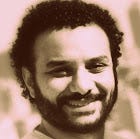Product Manager vs Product Owner
Who cares about Roles not Titles
Traditional discussion of all time, have you heard this question many times? And it seems to you that it’s baffling to many employees who work in product management positions? I think the answer is yes!
Of course, the two roles always overlap and intersect in many different sectors at the same organization and in the same project, so this confusion occurs. to eliminate the confusion in your mind and answer this question. You should know that the answer may vary depending on the size of the organization, product maturity, team culture, market, industry … etc.
But first let’s explore what points I’m trying to share with you today.
- What is the fundamental difference between P.M and P.O?
- What are the main functions of both?
- Who can play the ideal role ‘not a title’ for your startup / organization?
What is the fundamental difference between P.M and P.O?
- Product Manager
While Scrum come up with a clear description of the product owner role, this is not the same case for Product Manager. but in general we can come up with practical definition. according to Product Plan for example Product manager is strategic person, he/she focus on the product’s vision, company objectives, and the market. and also in Agile generally the person who is responsible for discovers what users need, prioritizes what to build next, and rallies the team around a product road-map.
“ The Product managers is strategic person, he/she focus on the product’s vision, company objectives, and the market needs ”
So the primary value of a product manager is how he can obtain a clear long-term vision / strategy for the product and shape it into a road-map for the future.
- Product Owner
Is clearly define in Scrum Guide, The Product Owner is responsible for maximizing the value of the product resulting from work of the development team.The Product Owner is the sole person responsible for managing the Product Backlog and writing user stories. also Product Owner are more tactical in practice and they work closely with delivery teams to ensure they build the right functionality in a time.
“ The Product Owner is responsible for maximizing the value of the product resulting from work of the Development Team ”
So the primary value for a product owner is how he can understand the product manager’s strategy and configure it into Epics , small bits of stories and backlog to provide the best value for the user.
While the product manager has a highly strategic role and is accountable for the whole product life cycle, the role of the product owner entails a more narrow focus and closer work with the development team.
What are the main functions of both?
- Product Manager.
- Explain what users need through research. ‘Data driven’
- Obtain a clear long-term vision / Road-map.
- Decide which features to build next.
- Merging stakeholder, market and organization vision into one road-map
- Advocate for funding and manage the budget.
- Explore MVPs
- Cross-team alignment.
- Product Owner.
- Clearly express Product Backlog items.
- Arrange Epics / stories in the Product Backlog to achieve best goals and tasks.
- Optimizing the value of the work the development team does
- Ensure the Product Backlog is visible, transparent and clear to everyone, and articulate what the Scrum Team will work on next.
- Ensure that the Development Team understands the Epics / stories in the Product Backlog to the required level.
- Outstanding communication skills
- Defending clients’ needs in front of the development team.
“ roles overlap and intersect in different sectors at the same organization and in the same project ”
I quote this image to explain more the overlapping between Product Manager and Owner 280Group
Who can play the ideal role ‘not a title’ for your startup / organization?
Here we come, in my opinion, this is the most important part, as the titles are not a thing and can be changed from one organization to another, as Rosemary King Manager of Training Products in Mind the Product.
“ Titles are not as important as understanding the outcomes that you would like to achieve, and the weaknesses in your current structure and process.”
So why do they change? I think that’s not what we’re aiming at with this article. But we can say that roles / duties are the main goal. So what is your needs from the role? will determine the core value of the person who can play the decisive role to achieve the best results for the product and the organization. To clarify your needs, you have to answer a few questions.
- What is wrong with the organization process now?
- Which success are you looking for?
- Is it clear what you need to build next?
- Can I hear my clients?
- Are deliveries slow?
- Who can make the decision?
- Where can you find all the information about your product?
You can answer these questions and certainly you can add more of your questions that define the needs of your organization and also to define your role as an employee if you are part of the product team what exactly is your role.
Finally, product management is very diverse, everyone can play the role of product manager for one product and in the other they can be the product owner. In some low-budget organizations — or sometimes well-funded :) — we can’t find both roles, and it’s likely that one person will do all the duties, which is why the roles need to be taken care of, not the titles. The outcome is valuable and the achievements are great
Please share with me your thought :)
References.
Scrum guide, Product plan, Scrum.org, Product board, 280Group, mind the product, atlassian
